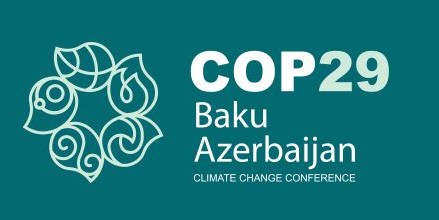As we move through 2024, the world feels more fragile and perilous than ever before, confronting what experts now refer to as a global "Polycrisis." This interconnected web of complex challenges touches every country and defies easy solutions by national governments, regional organizations, or the United Nations. The result is a deep political and social crisis, where many citizens are disenchanted with the failure of traditional political systems to meet basic human needs. This has led to political paralysis, populism, and authoritarianism, with 74% of the global population now living under some form of autocracy.
Rising Inequality and Stagflation
One of the most destabilizing forces today is extreme inequality. The global wealth gap has reached unprecedented levels, with Oxfam reporting that the richest 1% now own 43% of the world’s wealth, while the majority struggle to make ends meet. This imbalance is not only morally unsustainable but a clear driver of conflict, breeding resentment, frustration, and unrest. When basic needs are not met, political and social systems begin to fray, giving rise to populist movements and deepening social divides.
Most countries are also grappling with stagflation – a combination of low economic growth and persistent inflation. This weakens governments’ ability to provide public goods like health, education, and welfare, increasing dissatisfaction among the populace. Volatility in food and energy markets exacerbates this instability, pushing the most vulnerable communities further into poverty. Global hunger and food insecurity are at record highs, adding another layer of risk to already fragile political systems.
The Surge in Geopolitical Conflicts
The rise in inequality and economic instability is also contributing to a resurgence of geopolitical conflicts. In 2023 alone, there were 59 active armed conflicts, compared to just 31 in 2010. Wars in Ukraine, Gaza, Myanmar, and other regions are compounded by a deepening rivalry between the United States and China. Military expenditures have surged across Europe and Northeast Asia, spurred by new alliances like AUKUS and the QUAD. This militarization is destabilizing regions already under economic pressure, creating an arms race that shows no signs of abating.
At the same time, arms control frameworks that once provided stability have been eroded. Russia’s nuclear threats during the Ukraine conflict have destabilized the nuclear deterrence regime. Treaties like the Intermediate-Range Nuclear Forces (INF) Treaty and the New START Treaty have been undermined, while nuclear-armed states modernize and expand their arsenals. The Treaty on the Prohibition of Nuclear Weapons (TPNW) stands as a beacon of hope, but it has not been embraced by any nuclear powers or their allies, limiting its effectiveness.
Climate Change: The Ultimate Threat Multiplier
Amid these political and military crises, climate change remains the most pressing issue facing humanity. The impacts of rising global temperatures—wildfires, floods, droughts, and hurricanes—are escalating year by year, affecting every corner of the globe, from the Pacific islands to European cities. Despite the urgency, global action remains woefully insufficient.
The Paris Agreement of 2015, once seen as a landmark achievement, has largely failed to produce meaningful results. Major carbon emitters continue to miss their targets, and global emissions have yet to peak. Climate change is not only an environmental crisis but also a security threat. It acts as a "threat multiplier," exacerbating resource shortages, displacing millions, and fuelling conflicts in already vulnerable regions. The summer of 2023 was the hottest in recorded history, and July 22, 2024, marked the world’s hottest day ever. Arctic and Antarctic winters are warming rapidly, and the 1.5°C global temperature threshold is expected to be breached within the next five years. Coupled with accelerating species extinction and ecological disruption, climate change represents an existential threat to humanity.
Rethinking Global Governance and Solutions
Addressing the intertwined crises of inequality, political instability, and climate change requires a fundamental rethinking of global governance. The neoliberal economic model that prioritizes profit over people and the environment is no longer viable. Global problems demand global solutions, but they must also be addressed locally through inclusive, collaborative, and sustainable approaches. Here are key areas for immediate action:
- Reducing Inequality: To address extreme wealth disparity, governments must introduce progressive wealth taxes and implement comprehensive wealth redistribution programs. Strengthening labour rights and giving a voice to marginalized communities will help foster more equitable societies.
- Stabilizing Economies: Governments need to seize the opportunity to create sustainable economic growth by developing regional food security programs and investing in green industries. By focusing on long-term resilience rather than short-term gains, economies can better meet the needs of their populations.
- Preventing Geopolitical Conflicts: To mitigate the risk of further geopolitical competition, it is essential to enhance early warning systems for conflict prevention. Regional peacebuilding institutions must be strengthened in collaboration with the United Nations. Confidence-building measures between military powers can reduce tensions and prevent escalation.
- Reviving Arms Control: The international community must commit to revitalizing regional and multilateral arms control frameworks. The UN and other regional organizations need to strengthen their monitoring capabilities to prevent nuclear proliferation and testing, while pursuing renewed diplomatic efforts to bring nuclear-armed states into disarmament negotiations.
- Reforming the United Nations: For the UN to remain relevant in addressing global crises, reform is essential. The Security Council’s veto power needs to be reevaluated, with an eye toward expanding its membership to reflect current global power dynamics. Greater financial support for the UN and stronger enforcement mechanisms for its resolutions will enhance its ability to respond to conflicts and humanitarian crises.
- Combating Climate Change: Climate change must be recognized as the existential threat it is. Enforceable carbon pricing mechanisms, along with expanded adaptation and loss-and-damage funds, are essential for supporting the most vulnerable populations. Climate resilience programs in both urban and rural areas must be scaled up, and indigenous land management practices should be integrated into broader climate strategies. Above all, humanity must cultivate a collaborative and respectful relationship with nature to ensure long-term survival.
The challenges of 2024 are overwhelming, but they are not insurmountable. What is needed is a revolution in thinking, one that prioritizes global cooperation, sustainability, and equity over short-term profits and political expediency. The interconnected crises of inequality, geopolitical instability, and climate change require a bold reimagining of how we govern ourselves and interact with the planet. Only through collective action and shared responsibility can we hope to navigate this era of uncertainty and build a more just, peaceful, and sustainable future.
Post-script: Challenges to Democracy
Following the completion of my State of the World report, a significant shift has emerged in the United States' political landscape. Donald Trump and his MAGA/Republican supporters have won the 2024 Presidential Election, securing control of both the Senate and the House of Representatives. This victory, marked by Trump’s success in both the popular and electoral votes, reflects a profound political realignment, including unexpected support from communities traditionally aligned with the Democratic Party—African American men, Hispanic and Arab voters, and a surprising number of women. This election’s outcome speaks to a readiness among American voters to overlook past controversies and charges against Trump, embracing his promises to wield expanded executive power. Such power could impact the balance within the government, with implications for the judiciary, which has already seen increased influence by MAGA-aligned appointees. Policies under this administration are likely to be reactionary rather than strategic, with potential challenges to the rule of law and the established global order.
This presidency is likely to bring high levels of political unpredictability. Trump has made clear his intention to withdraw from multilateral institutions, re-enter protectionist policies, and limit the influence of organizations like UNESCO and the WHO. His stated economic approach evokes memories of policies that contributed to the turmoil of the 1930s. Furthermore, his unaltered stance on issues such as race, media freedoms, and misinformation signifies that he may continue to promote a divisive political atmosphere.
On the international front, Trump’s vision for resolving conflicts—such as the Ukrainian and Israeli wars—within constrained timelines raises considerable alarm, particularly among those directly impacted. Additionally, his commitment to escalating U.S.-China tensions may heighten instability in Northeast Asia. On climate, his longstanding dismissal of climate change as a “hoax” suggests a reversal of U.S. commitments to the Paris Climate Agreement and likely dismantling of environmental regulations, a stance that risks undermining global environmental efforts.
One of the more unsettling promises involves mass deportations, which, if enacted, could affect millions and pose significant challenges to civil liberties across the nation.
These anticipated actions and policies necessitate vigilance, resilience, and an unwavering commitment to democratic values. Those who did not support this administration—or who have reservations about its direction—will need to engage actively, fostering a society that upholds the principles of inclusivity, compassion, and justice. Even as we encounter challenges, we must remain hopeful, resilient, and guided by our shared humanity. In the face of negativity, we will persist in the pursuit of a world built on respect, dignity, and courage.






